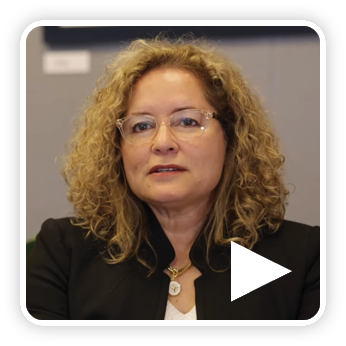Caring Campus: Improving Student Retention and Success
Students come where they are welcome and stay where they feel cared about. If students don’t feel connected to the college they attend, they are far less likely to persist and succeed, regardless of the academic interventions and support services the college has provided. As the Aspen Institute notes, “A culture of caring has become a hallmark of excellent community colleges.”
The Institute for Evidence-Based Change (IEBC) has created Caring Campus based on research that shows students who feel more connected to their college are more likely to be retained, persist from semester to semester, and complete their academic goals. Increasing connectedness, therefore, can go a long way toward increasing the likelihood of maintaining enrollment.
IEBC has a proven method for creating a Caring Campus that ensures all students feel connected to their college. Over 120 colleges are implementing Caring Campus around the country and they are seeing improvements in course retention and success and term-to-term persistence. Research demonstrates achievement gaps are being closed dramatically.
With little to no resource commitment beyond the initial IEBC coaching, Caring Campus drives behavior changes that improve and enhance the many student success initiatives already being implemented at colleges around the United States. Using a unique coaching model, faculty and staff create implementation plans for behaviors that are easily implemented intentionally and campus-wide. Cabinet and department leadership commit to supporting, monitoring, and celebrating these behaviors. These groups work together to institutionalize Caring Campus behaviors across the college. Caring Campus goes immediately to scale after one or two semesters of coaching.
Caring Campus’s unique coaching model is implemented differently for faculty and professional staff (below). For both groups, the Caring Campus coach provides their contact information to leadership and coaching participants and is available throughout the process for ongoing support. Both groups also work toward a final session intended to rollout behavioral commitments campus-wide. IEBC continues to follow-up with the college long after the formal process ends to assist with institutionalization.
Caring Campus Faculty Process

For faculty, Caring Campus begins with a leadership orientation session. Then, IEBC works with the college’s institutional research department to identify faculty members with consistently high rates of course retention and success. These faculty members are interviewed by designated college leadership using an IEBC protocol to explicate their non-instructional behaviors that promote student connectedness and success. They then are invited to participate, with the college’s instructional leadership, in a coaching process to develop strategies for implementing these behaviors with their colleagues intentionally and campus-wide. The team also addresses institutionalization and sustainability. The group continues to meet after the final coaching session to rollout the behaviors with their faculty colleagues. IEBC remains involved to support and institutionalization and sustainability efforts. To download a PDF of the faculty process, click here.
Caring Campus Professional Staff Process

For professional staff, the process begins with a leadership kickoff event to ensure executive team and department leaders understand Caring Campus and the expectations for their staff. Professional staff representatives identified by department leads participate in a series of coaching sessions during which they develop implementation plans for behavioral commitments to be implemented intentionally and campus-wide for the college. The formal process proceeds with a joint session for staff to present their work and for leaders to identify how they will support, monitor, and celebrate campus-wide rollout and institutionalization. The group continues to meet after the joint session with leadership support to implement the behavioral commitments. The process is supported throughout with coaching support.
Our process leads to the college faculty and staff engaging in behaviors that also lead to culture change. Caring Campus colleges report improved satisfaction among faculty and staff, and improved relationships between professional staff, leadership, and faculty. Higher levels of awareness of the functions of other departments also are prevalent. Participating staff and faculty report that Caring Campus is immediately valuable to their students, themselves, and the college. To download a PDF of the staff process, click here.
To download a copy of this page, click here.
For more information about Caring Campus, please contact us at [email protected] or call 562-688-5721.
Dr. Claudia Lourido-Habib Shares Caring Campus Impact at Porterville College
Porterville College President Dr. Claudia Lourido-Habib shares that Caring Campus equips classified professionals with the tools and resources they need to find their voices and enhance their engagement with students. This increased engagement is making a noticeable difference, with students reporting that their interactions with staff have had a significant impact on their college experience.
The First Caring Campus University: Texas A&M University – Kingsville
Texas A&M University – Kingsville President Dr. Robert Vela shares the importance of integrating Caring Campus into the university’s strategic plan, values, and mission so that students feel their school’s commitment to their wellbeing and success.
Why Sacramento City College Brought Caring Campus to its Institution
Michael Gutierrez, President, Sacramento City College, welcomes the approach of the Institute for Evidence-Based Change (IEBC) because it builds on what is already happening and is easily interwoven with other work like Guided Pathways. President Gutierrez explains how Caring Campus is transforming his college.
Why Sacramento City College Brought Caring Campus to its Institution
Dr. Claudia Lourido-Habib Shares Caring Campus Impact at Porterville College
The First Caring Campus University: Texas A&M University – Kingsville
How Caring Campus Came to Oakton Community College
A Story about Improving Student Enrollment and Persistence with Caring Campus
Caring Campus Guide One Webinar
Caring Campus Guide Two Webinar
Caring Campus Guide Three Webinar
Additional Caring Campus Resources
Where is
Caring
Campus?
what IEBC is learning about caring campus
Caring Campus Guides and Webinars
What EDUCATORS
are Saying
About Caring Campus
Ready to Get Started?
Let’s Work
Together
Our easy on-boarding process will get you the answers you need quickly and efficiently. Click below to get started.






